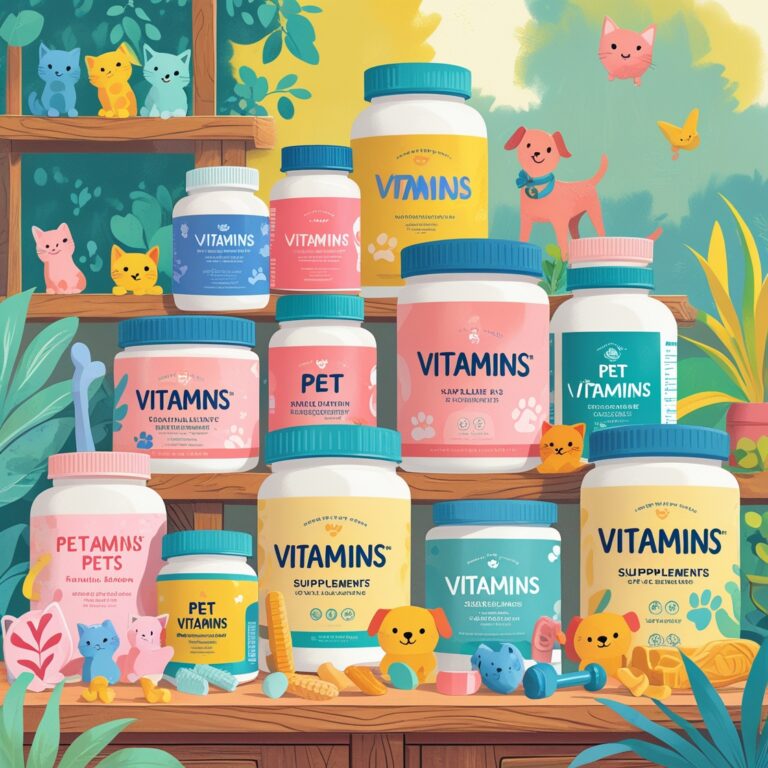If you’re a cat parent, you already know that your feline friend has a personality all their own — and their nutritional needs are just as unique. Choosing the right cat food and knowing when to supplement with cat vitamins can make a big difference in your kitty’s health, energy levels, and even their lifespan.
In this guide, we’ll explore the connection between your cat’s diet and vitamin intake — and help you decide when (or if) supplements are necessary.
Why Quality Cat Food Matters
The foundation of good feline health starts with high-quality cat food. The best cat foods are complete and balanced, which means they contain the right proportions of:
- Protein (essential for muscle and tissue repair)
- Fats (for energy and skin/coat health)
- Carbohydrates (in moderation)
- Vitamins and minerals (for everything from vision to immune support)
Look for labels that meet AAFCO nutritional standards. This ensures the food has all essential nutrients your cat needs for their life stage (kitten, adult, senior).
Do Cats Need Vitamin Supplements?
The short answer: not always — but sometimes, yes.
Most healthy cats eating commercial cat food don’t need extra vitamins. These foods are fortified with the appropriate nutrients. However, there are cases where cat vitamin supplements can help, such as:
🐱 Senior Cats
Older cats may not absorb nutrients as well and may benefit from vitamins for joint support, cognitive health, or immune function.
🍽️ Homemade or Raw Diets
If you’re feeding your cat a homemade or raw food diet, it’s easy to miss important nutrients. In this case, supplements are usually essential.
🩺 Cats With Health Conditions
Cats with kidney disease, allergies, digestive issues, or stress may require targeted supplementation (e.g., Vitamin B complex, omega-3s, or probiotics).
Common Vitamins for Cats (And What They Do)
Here are some key vitamins your cat might need, and what they’re good for:
| Vitamin | Function | Found In |
|---|---|---|
| Vitamin A | Supports vision, skin, and coat health | Liver, egg yolk |
| Vitamin D | Aids calcium absorption, supports bones | Fish oil |
| Vitamin E | Antioxidant, supports immune system | Plant oils, fish |
| B Vitamins | Aid metabolism, nerve and brain health | Meat, organs |
| Vitamin C | Antioxidant (cats produce this on their own, but may need more under stress) | Supplement form only |
| Taurine | An essential amino acid for heart and vision health | Animal tissues |
Signs Your Cat May Be Missing Key Nutrients
If your cat has any of these symptoms, talk to your vet — a vitamin deficiency or imbalance could be the cause:
- Dull or thinning coat
- Lethargy or low energy
- Weight loss or poor appetite
- Vision issues
- Digestive upset
- Behavioral changes
Choosing the Right Cat Vitamins
If your vet recommends a supplement, choose products that are:
- Specifically made for cats (never use human vitamins!)
- Vet-recommended or approved
- Free from artificial additives, sugar, or dyes
- From a reputable brand with transparent sourcing
Popular types include liquid cat vitamins, chews, and powdered supplements that mix with food.
Final Thoughts
Feeding your cat a balanced diet is the first step toward lifelong health. While most cats get what they need from quality commercial food, certain situations call for extra help from cat vitamins and supplements.
When in doubt, always consult your veterinarian before adding anything to your cat’s diet. With the right nutrition and a little expert guidance, you can give your cat the healthiest, happiest life possible.

